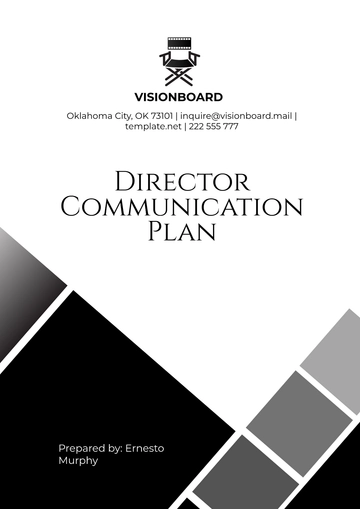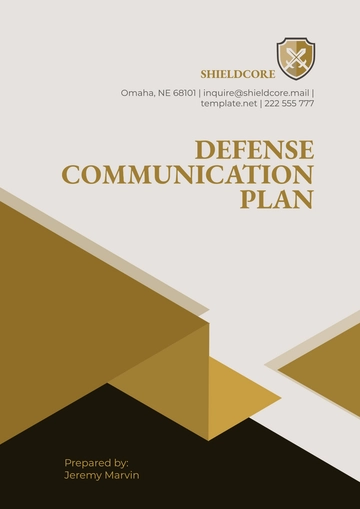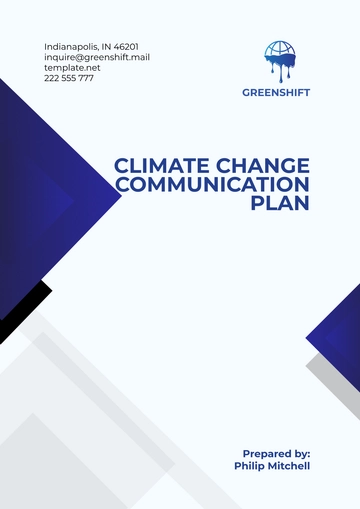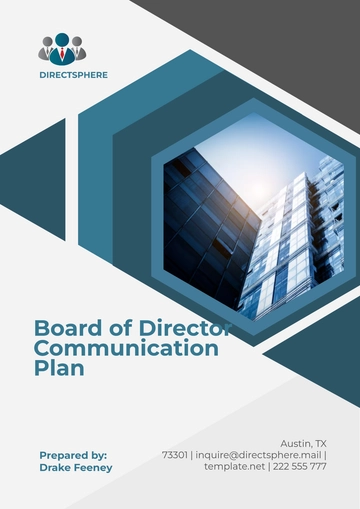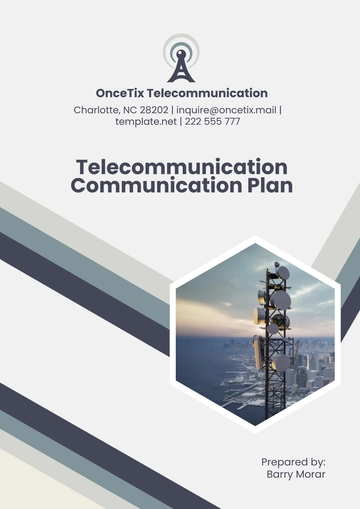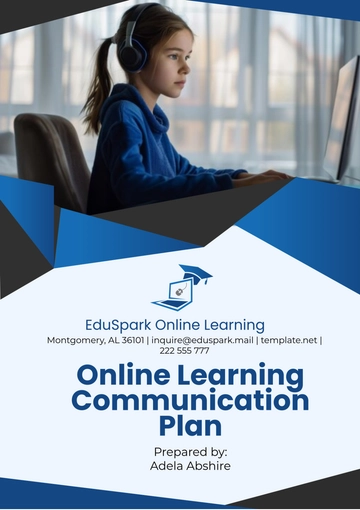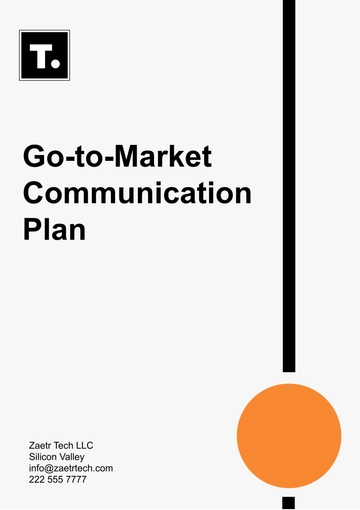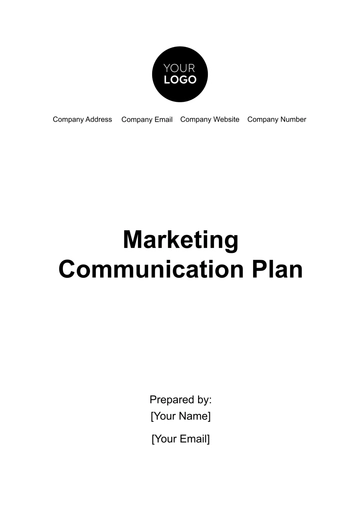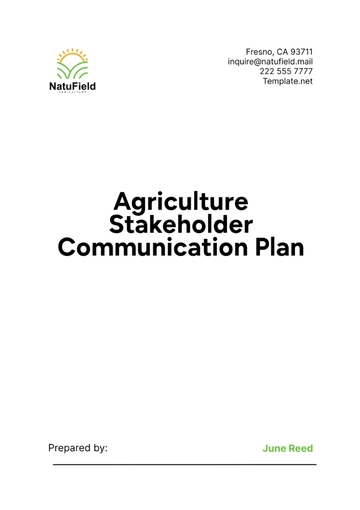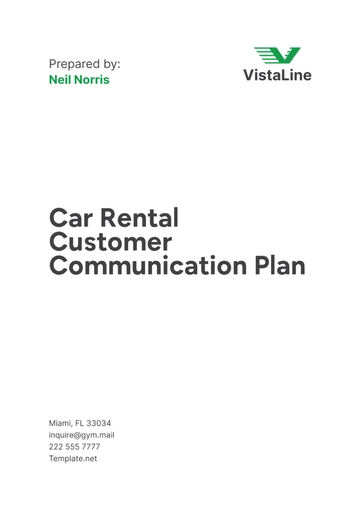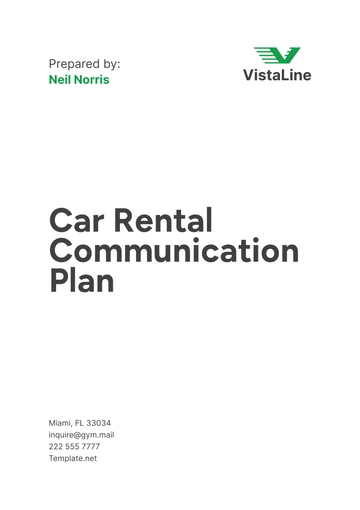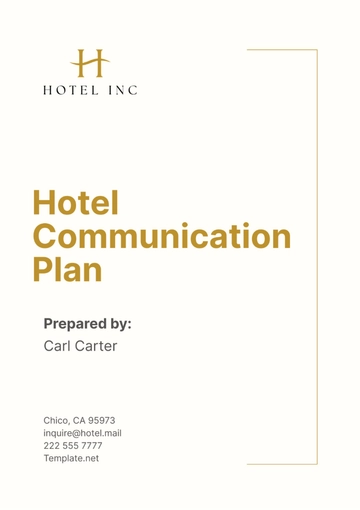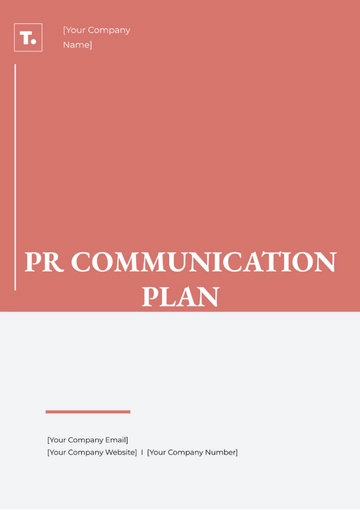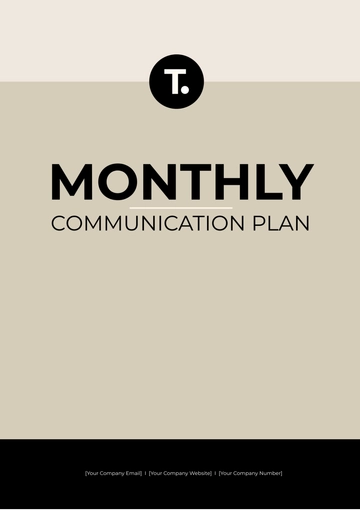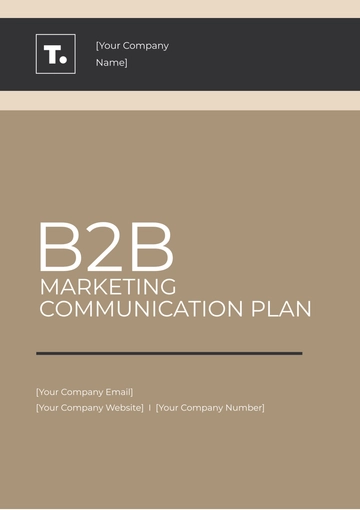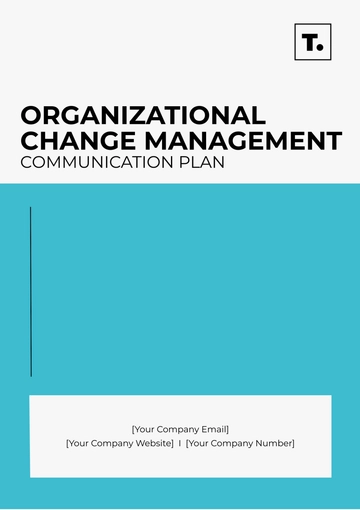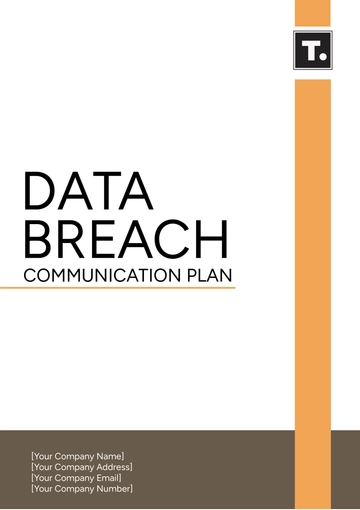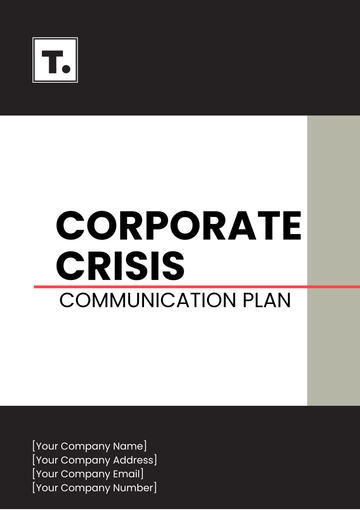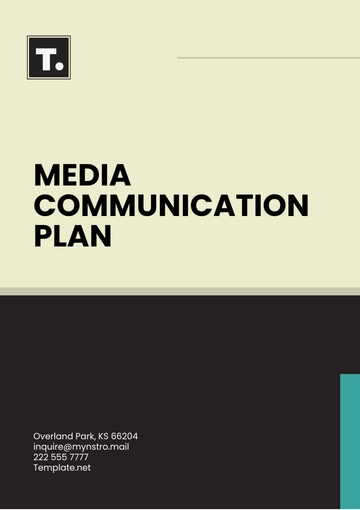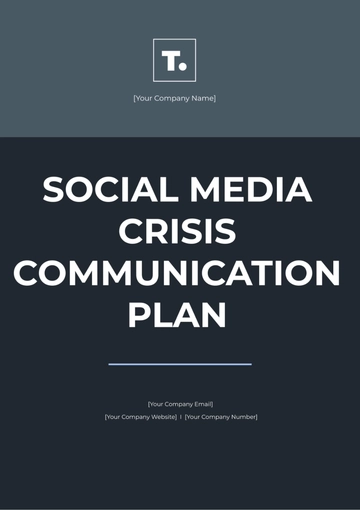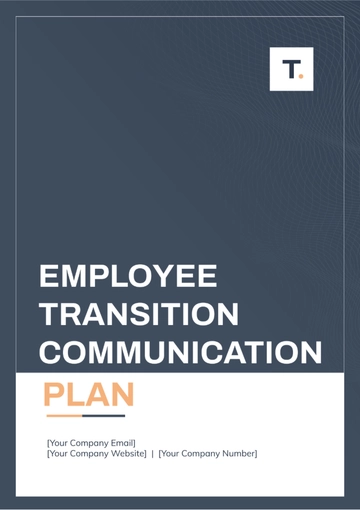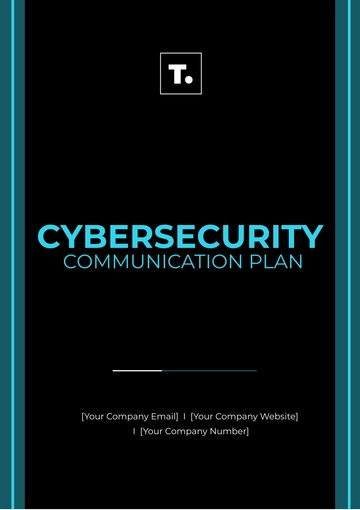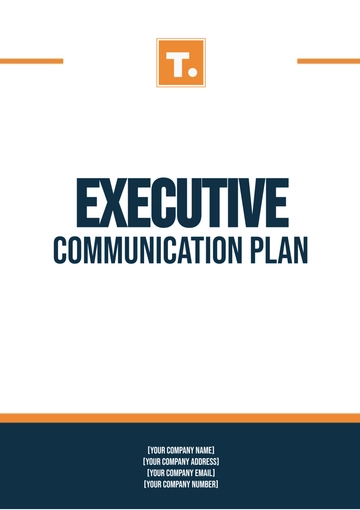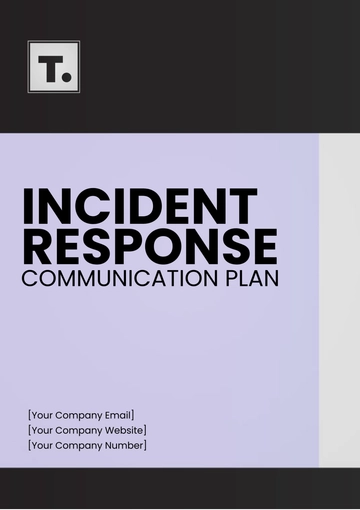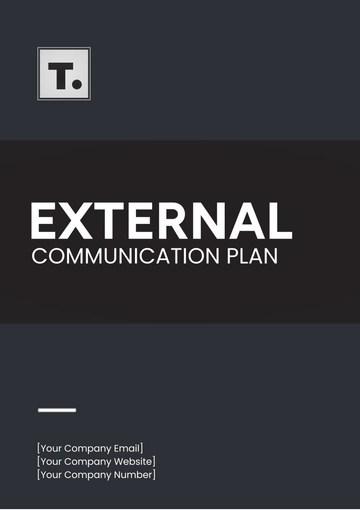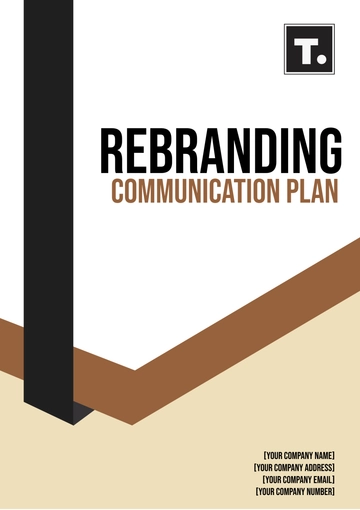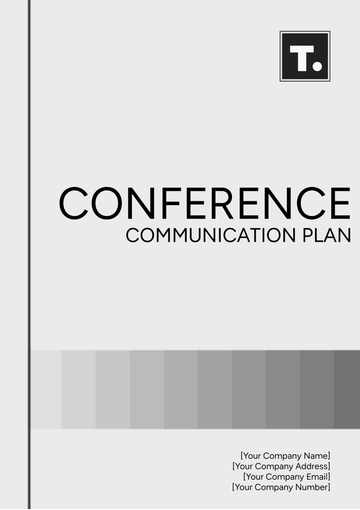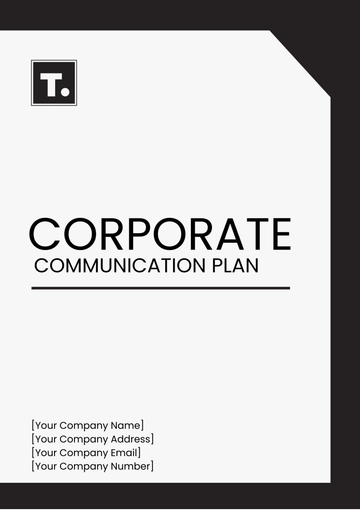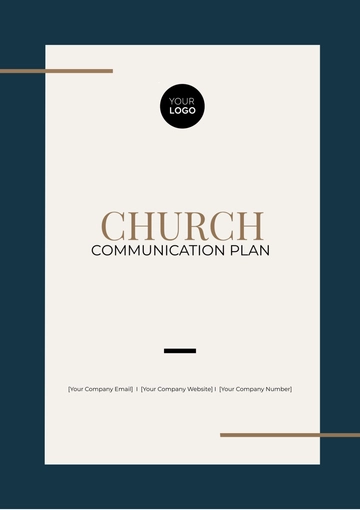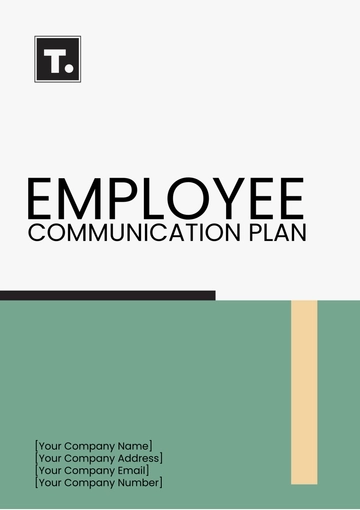Free Hotel Communication Plan
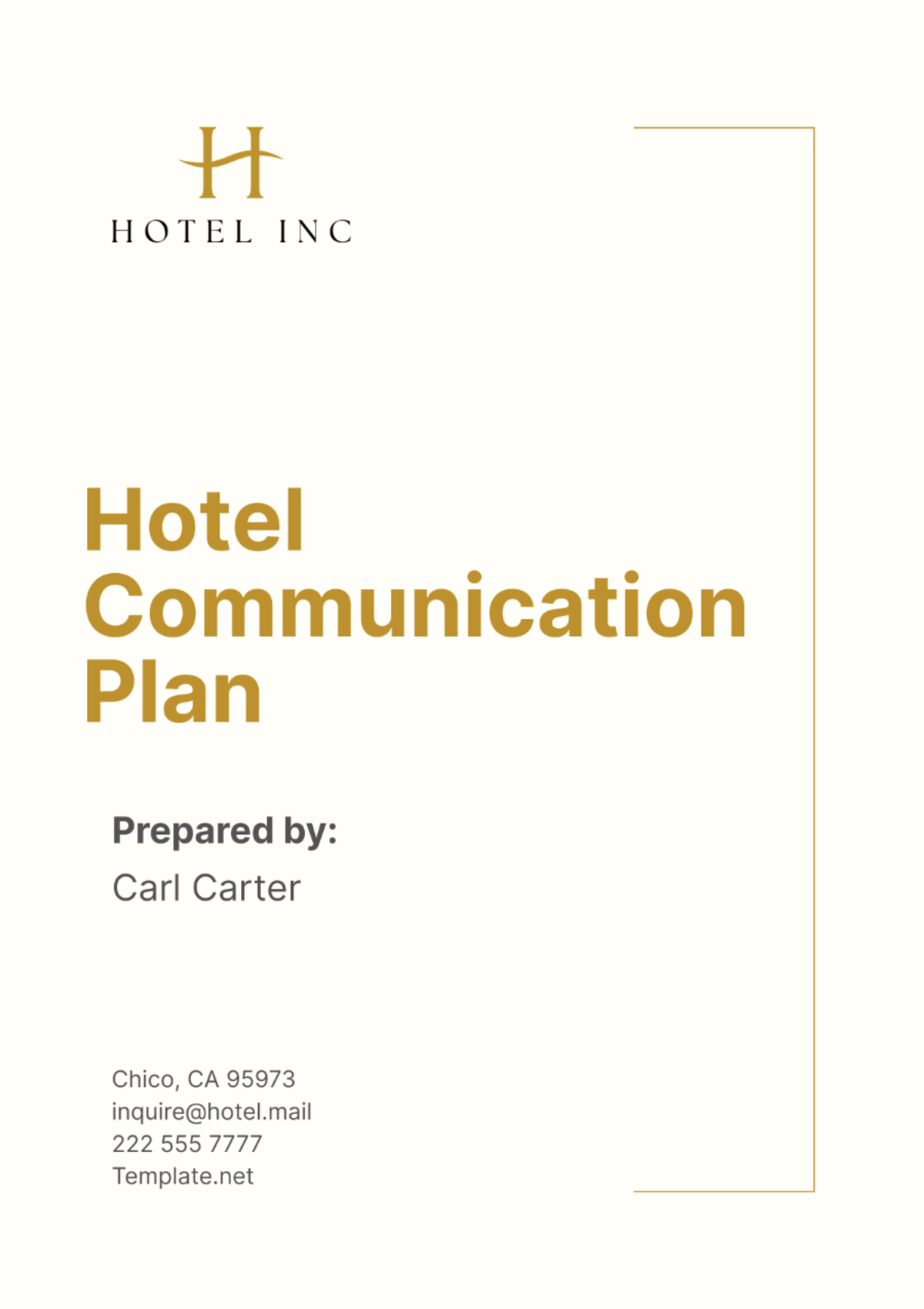
I. Executive Summary
This Hotel Communication Plan provides comprehensive guidelines and strategies for effectively managing internal and external communications within [Your Company Name]. The objective is to enhance guest satisfaction, improve operational efficiency, and build strong relationships with stakeholders. Effective communication is pivotal to the success of our hotel, ensuring that information flows smoothly between guests, staff, and management, which is essential for maintaining high standards of service and operational excellence.
The communication plan aims to establish a structured approach to both internal and external communications. Internally, it focuses on fostering clear and consistent communication among staff members across all departments. By utilizing designated communication channels such as emails, intranet platforms, staff meetings, bulletin boards, and instant messaging applications, we ensure that all team members are well-informed and aligned with the hotel's goals and operations. This not only improves operational efficiency but also enhances employee engagement and satisfaction, creating a cohesive and motivated team environment.
Externally, the plan emphasizes maintaining strong lines of communication with guests and other stakeholders. This includes leveraging our hotel website, email newsletters, social media platforms, customer service hotlines, and printed materials to provide guests with timely and relevant information. Effective external communication helps build and maintain our hotel's reputation, attract new customers, and ensure a positive experience for our guests. By consistently updating these channels, we can keep our guests informed about new services, promotions, and important announcements, thereby fostering loyalty and repeat business.
One of the key components of this communication plan is the establishment of clear objectives. These objectives include ensuring clear and consistent communication with guests, fostering effective internal communication among staff, promoting [Your Company Name] through various marketing channels, and establishing robust feedback mechanisms for continuous improvement. Achieving these objectives requires a coordinated effort across all levels of the organization, with specific roles and responsibilities assigned to ensure accountability and effective execution.
Furthermore, the communication plan details the roles and responsibilities of key personnel involved in the communication process. The Hotel Manager oversees all communication activities, ensuring alignment with the hotel's objectives. The Marketing Manager handles external communication efforts, including managing the website, social media, and promotional materials. The HR Manager manages internal communication among staff and coordinates training programs, while Front Desk and Housekeeping Staff engage with guests directly, ensuring their needs are met and feedback is collected.
Feedback mechanisms are integral to the communication plan, providing valuable insights for continuous improvement. Guest feedback will be collected through post-stay email surveys, comment cards, online reviews, and direct feedback via social media and contact forms. Staff feedback will be gathered through monthly staff meetings, anonymous suggestion boxes, periodic surveys, and performance reviews. This feedback will be analyzed and used to make informed decisions that enhance both guest satisfaction and operational efficiency.
II. Objectives
The key objectives of this Communication Plan are essential for ensuring seamless operations and maintaining high standards of guest satisfaction and employee engagement. Each objective is designed to address specific aspects of communication that are critical to the success of [Your Company Name].
Ensure Clear and Consistent Communication with Guests
Maintaining open and consistent communication with guests is paramount to providing a high-quality experience. Effective communication helps in understanding guest needs and expectations, addressing their concerns promptly, and keeping them informed about the hotel's services and policies.
Informing Guests: Regular updates through various channels such as email newsletters, social media, and the hotel website ensure that guests are well-informed about ongoing promotions, special events, and any changes in services. For instance, if there are renovations or changes in the hotel’s amenities, informing guests beforehand can prevent dissatisfaction and build trust.
Personalized Communication: Personalizing communication based on guest preferences and past behaviors enhances their experience. This can be achieved through targeted emails or messages that cater to their specific interests, such as offering special packages to frequent guests or acknowledging their preferences in room service.
Feedback Loop: Establishing a feedback loop where guests can easily share their experiences and suggestions is crucial. This includes post-stay surveys, online reviews, and direct communication channels such as social media and customer service hotlines. Responding to feedback promptly shows guests that their opinions are valued and taken seriously.
Foster Effective Internal Communication Among Staff
Clear internal communication is essential for the smooth operation of hotel activities and fostering a positive work environment. It ensures that all team members are informed, motivated, and aligned with the hotel’s goals.
Regular Meetings: Weekly staff meetings help in discussing ongoing projects, addressing concerns, and planning future activities. These meetings foster teamwork and ensure that all departments are aligned with the hotel's operational goals.
Intranet Platform: An intranet platform serves as a central repository for all important information, including policies, schedules, and updates. This ensures that staff can easily access the information they need to perform their duties effectively.
Instant Messaging Applications: Using instant messaging applications like Slack or Microsoft Teams facilitates real-time communication, allowing staff to quickly resolve issues and share information. This is particularly useful for coordinating between departments and ensuring swift responses to guest requests.
Training and Development: Continuous training and development programs ensure that staff are well-informed about the latest practices and standards. Regular workshops and training sessions keep staff updated and motivated, contributing to a more efficient and effective team.
Promote [Your Company Name] Through Various Marketing Channels
Effective marketing is critical to attracting new guests and maintaining a positive image of the hotel. Utilizing diverse marketing channels helps in reaching a broader audience and establishing a strong brand presence.
Social Media Engagement: Active engagement on social media platforms such as Facebook, Instagram, and Twitter helps in building a community around the hotel brand. Regular posts, interactive content, and responding to comments and messages can significantly enhance brand visibility and guest engagement.
Email Marketing: Sending regular email newsletters keeps past and potential guests informed about special offers, events, and updates. Personalized emails can also increase engagement and conversion rates by providing tailored content to different segments of the audience.
Content Marketing: Creating valuable content such as blog posts, videos, and guides related to travel and hospitality can attract more visitors to the hotel’s website and social media pages. This not only enhances SEO but also establishes the hotel as an authority in the hospitality industry.
Advertising: Utilizing both online and offline advertising channels can broaden the hotel’s reach. This includes pay-per-click (PPC) campaigns, social media ads, and traditional advertising methods such as print ads and billboards.
Establish Feedback Mechanisms for Continuous Improvement
Continuous improvement is vital for maintaining high standards of service and operations. Establishing robust feedback mechanisms ensures that both guest and staff feedback are collected, analyzed, and acted upon.
Guest Surveys: Conducting post-stay email surveys allows guests to provide detailed feedback about their experience. This information is invaluable for identifying areas of improvement and enhancing guest satisfaction.
Online Reviews: Monitoring online reviews on platforms like TripAdvisor, Google, and social media provides real-time insights into guest perceptions. Responding to reviews—both positive and negative—demonstrates the hotel’s commitment to guest satisfaction and helps in managing its online reputation.
Staff Feedback: Regularly collecting feedback from staff through anonymous suggestion boxes, periodic surveys, and performance reviews helps in understanding their concerns and improving internal processes. Engaging with staff feedback fosters a supportive work environment and enhances overall efficiency.
Actionable Insights: The feedback collected from guests and staff should be analyzed to generate actionable insights. Implementing changes based on this feedback can lead to significant improvements in service quality and operational efficiency.
Strengthen Relationships with Stakeholders
Building and maintaining strong relationships with various stakeholders, including suppliers, partners, and local communities, is essential for the hotel’s long-term success.
Supplier Relationships: Regular communication with suppliers ensures a steady flow of high-quality products and services. Building strong relationships with suppliers can lead to better terms and reliability.
Partnerships: Collaborating with local businesses and tourism agencies can enhance the hotel’s offerings and attract more guests. Joint promotions and packages can be mutually beneficial.
Community Engagement: Engaging with the local community through events, sponsorships, and partnerships can improve the hotel’s reputation and foster goodwill. This can also attract local guests and promote a positive image.
Ensure Compliance with Regulations
Adhering to local, state, and federal regulations is crucial for lawful and ethical operations. This involves staying updated with legal requirements and ensuring all practices comply with the regulations.
Regular Audits: Conducting regular audits to ensure compliance with health and safety regulations, labor laws, and other legal requirements helps in avoiding legal issues and maintaining high standards.
Training Programs: Providing training to staff on compliance-related topics ensures that everyone is aware of the legal requirements and follows them diligently.
Documentation: Keeping detailed records of compliance-related activities, including training sessions, audits, and inspections, helps in demonstrating adherence to regulations.
Enhance Crisis Communication
Effective crisis communication is vital for managing unforeseen events and maintaining the hotel’s reputation. This involves having a clear plan for communicating with guests, staff, and media during emergencies.
Crisis Management Plan: Developing a comprehensive crisis management plan that includes communication protocols, designated spokespersons, and procedures for different types of emergencies ensures preparedness.
Training and Drills: Regularly conducting training sessions and drills for staff to ensure they are well-prepared to handle emergencies and communicate effectively.
Timely Updates: Providing timely and accurate updates to guests, staff, and media during a crisis helps in managing the situation effectively and maintaining trust.
Monitor and Evaluate Communication Effectiveness
Regularly monitoring and evaluating the effectiveness of communication strategies ensures that they are achieving the desired outcomes. This involves setting measurable goals and regularly reviewing performance.
Key Performance Indicators (KPIs): Establishing KPIs for communication activities, such as engagement rates, response times, and feedback scores, helps in measuring success.
Regular Reviews: Conducting regular reviews of communication strategies and making necessary adjustments ensures continuous improvement.
Feedback Analysis: Analyzing feedback from guests and staff to identify areas of improvement and implement changes accordingly.
These objectives provide a comprehensive framework for managing communication within [Your Company Name]. By focusing on clear and consistent communication with guests, effective internal communication, robust marketing efforts, continuous feedback mechanisms, strong stakeholder relationships, regulatory compliance, crisis communication, and ongoing evaluation, we can achieve operational excellence and enhance guest satisfaction.
III. Communication Channels
Effective communication requires the use of appropriate channels for both internal and external stakeholders. The following sections outline the recommended channels for [Your Company Name].
A. Internal Communication
To ensure seamless communication among hotel staff, the following channels will be utilized:
Emails will be used for formal communication, important announcements, and detailed information sharing. This ensures that all staff members receive consistent and documented information.
Intranet Platform
An intranet platform will be established for centralized access to company policies, schedules, updates, and other resources. This platform will serve as a go-to resource for employees.
Staff Meetings
Regular staff meetings will be held to discuss ongoing projects, address concerns, and plan future activities. These meetings foster team collaboration and ensure everyone is aligned with the hotel's goals.
Bulletin Boards
Bulletin boards placed in common areas will be used for posting announcements, schedules, and other important information. This ensures that staff members who may not check emails regularly are still informed.
Instant Messaging Applications
Instant messaging applications such as Slack or Microsoft Teams will be used for quick, real-time communication among staff. This facilitates immediate responses and quick resolution of issues.
B. External Communication
For communication with guests and external stakeholders, the following channels are recommended:
Hotel Website [Your Company Website]
The hotel website will be the primary source of information for guests. It will include details about services, booking options, special offers, and contact information.
Email Newsletters
Monthly email newsletters will be sent to guests and potential customers to keep them informed about upcoming events, promotions, and hotel news. This helps maintain engagement and build long-term relationships.
Social Media Platforms [Your Company Social Media]
Social media platforms like Facebook, Instagram, and Twitter will be used to promote the hotel, share updates, and engage with guests. Regular posts will keep the hotel in the public eye and attract new customers.
Customer Service Hotline [Your Company Number]
A dedicated customer service hotline will be available for guests to address their queries, make reservations, and provide feedback. This ensures direct and personalized communication.
Printed Materials (Brochures, Flyers)
Printed materials will be distributed quarterly to promote the hotel and its services. These materials will be available at the front desk, in guest rooms, and at local tourist information centers.
IV. Timing and Frequency
Proper timing and frequency of communication are crucial for maintaining relevance and engagement. The following schedule outlines the recommended timing and frequency for both internal and external communications.
A. Internal Communication
Staff Meetings: Weekly
Weekly staff meetings will ensure that all departments are aligned and any issues are addressed promptly.
Email Updates: As Needed
Emails will be sent as needed to communicate important updates, announcements, and detailed information.
Bulletin Board Updates: Bi-Weekly
Bulletin boards will be updated bi-weekly with schedules, announcements, and other relevant information.
Instant Messaging: Ongoing, As Required
Instant messaging will be used continuously for day-to-day communication and quick responses.
B. External Communication
Email Newsletters: Monthly
Monthly newsletters will keep guests and potential customers informed about the latest news, events, and promotions.
Social Media Posts: Daily
Daily posts on social media platforms will maintain engagement and attract new followers.
Website Updates: As Needed
The website will be updated regularly with the latest information on services, promotions, and other relevant content.
Brochures/Flyers: Quarterly
Printed materials will be refreshed quarterly to ensure they provide the most up-to-date information about the hotel.
V. Roles and Responsibilities
Clear roles and responsibilities ensure that all communication activities are carried out efficiently and effectively.
Hotel Manager
Responsibilities:
Oversees all communication activities and ensures alignment with the hotel’s objectives.
Ensures that communication strategies are implemented effectively.
Reviews and approves major communication materials before they are disseminated.
Marketing Manager
Responsibilities:
Handles external communication efforts including website, social media, and promotional materials.
Develops marketing campaigns and tracks their performance.
Ensures that all promotional content aligns with the hotel's brand and objectives.
HR Manager
Responsibilities:
Manages internal communication among staff and coordinates training programs.
Develops and implements HR policies and ensures staff compliance.
Facilitates employee engagement initiatives and feedback collection.
Front Desk Staff
Responsibilities:
Engages with guests directly, providing assistance and gathering feedback.
Communicates guest requests and issues to relevant departments.
Ensures that all guest interactions are positive and professional.
Housekeeping Staff
Responsibilities:
Communicates room status and special requests with the front desk and maintenance.
Ensures that guest rooms meet the hotel's standards of cleanliness and comfort.
Reports any maintenance issues or guest complaints promptly.
VI. Feedback Mechanisms
Establishing robust feedback mechanisms is essential for continuous improvement and guest satisfaction. The following methods will be used to collect and analyze feedback from guests and staff.
A. Guest Feedback
To continuously improve guest satisfaction, feedback will be collected through various channels:
Guest Surveys (Post-Stay Email Surveys)
Email surveys will be sent to guests after their stay to gather feedback on their experience. These surveys will include questions about room quality, service, amenities, and overall satisfaction.
Comment Cards
Comment cards will be placed in guest rooms and common areas for guests to provide immediate feedback. These cards will be collected and reviewed regularly.
Online Reviews and Ratings
Monitoring online reviews and ratings on platforms such as TripAdvisor, Google, and social media will provide valuable insights into guest satisfaction and areas for improvement.
Direct Feedback Through Social Media and Contact Forms
Guests will be encouraged to provide feedback directly through social media and the hotel's contact forms. This allows for real-time responses and quick resolution of any issues.
B. Staff Feedback
Regular feedback from staff will be gathered via:
Monthly Staff Meetings
Monthly staff meetings will include dedicated time for employees to share their feedback and suggestions. This fosters open communication and a collaborative work environment.
Anonymous Suggestion Boxes
Suggestion boxes will be placed in staff areas to allow employees to submit feedback anonymously. This encourages honest and candid input.
Periodic Surveys
Periodic surveys will be conducted to gather detailed feedback on various aspects of the workplace. These surveys will help identify areas for improvement and gauge employee satisfaction.
Performance Reviews
Performance reviews will include opportunities for employees to provide feedback on their roles, responsibilities, and overall job satisfaction. This helps in identifying training needs and career development opportunities.
VII. Conclusion
Effective communication is pivotal to the success of [Your Company Name]. By utilizing the right channels, maintaining appropriate timing and frequency, and defining clear roles and feedback mechanisms, we can ensure clarity, efficiency, and enhanced guest satisfaction. Continuous improvement and adherence to these communication strategies will help us achieve excellence in hospitality and uphold our reputation as a premier hotel.
Written by: [Your Name]
Company: [Your Company Name]
- 100% Customizable, free editor
- Access 1 Million+ Templates, photo’s & graphics
- Download or share as a template
- Click and replace photos, graphics, text, backgrounds
- Resize, crop, AI write & more
- Access advanced editor
Optimize communication in your hotel with Template.net's Hotel Communication Plan Template. Tailored for hospitality businesses, this template provides a structured framework for effective internal and external communication strategies. Editable and customizable using our AI editor tool, it ensures seamless coordination across departments and with guests. Elevate your hotel's communication standards effortlessly, exclusively at Template.net.
